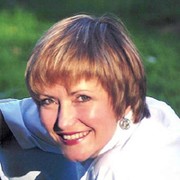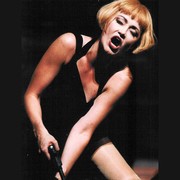More Berg and Schubert (with more Berg)
 San Francisco Symphony's Dawn to Twilight continued Wednesday night with four pieces from Berg and two from Schubert, though there were two more Schubert pieces (four-handed rondos) performed prior to the concert which I didn't attend due to ignorance of this amuse bouche. Although everything offered was performed at the highest level, I have to admit the programming for this particular concert was baffling to me and I couldn't make out what Michael Tilson Thomas is trying to state by placing these works on the same bill. The evening had no thematic continuity to at all, but rather seemed more like setting an IPod containing just the music of Berg and Schubert to "shuffle."
San Francisco Symphony's Dawn to Twilight continued Wednesday night with four pieces from Berg and two from Schubert, though there were two more Schubert pieces (four-handed rondos) performed prior to the concert which I didn't attend due to ignorance of this amuse bouche. Although everything offered was performed at the highest level, I have to admit the programming for this particular concert was baffling to me and I couldn't make out what Michael Tilson Thomas is trying to state by placing these works on the same bill. The evening had no thematic continuity to at all, but rather seemed more like setting an IPod containing just the music of Berg and Schubert to "shuffle."
Regardless, this evening saw a real triple threat of guest artists show up and give some fantastic performances. Unfortunately, the fact that they all seemed to be playing in an entirely different concert diminished their individual contributions to the whole and by the time it was over I had almost forgotten Julia Fischer's sublime playing of Schubert's Rondo in A major for Violin and Strings, which started off the show. Playing with and against a sixteen instruments, she gave a subtle, beautiful account of this romantic piece whose grace almost sneaks up on the listener. The strings play music that sounds of the earlier, Haydn-Mozart classical era, even hearkening back further to some Baroque flourishes, while the soloist performs a theme that begins in a distinctly more romantic vein. The theme gets a nice workout and in the end everything returns to the classical fold. Fischer played with superb clarity and control throughout.
Interesting for me was becoming aware of the concert experience in a different way and how a performer's individual presence or appearance can shape my impression. Following a string recent female performers at Davies who are the equivalent of classical music's "It Girls" (Yuja Wang, Leila Josefowicz) and true legends (Martha Argerich, Anne-Sophie Mutter), Fischer initially didn't make much of an impression on me from the stage. This wasn't helped by the traditional romantic sound of the piece she was playing. It was only when I stopped dwelling on the fact that she lacks a certain cultivated vivaciousness I've unconsciously come to expect and actually paid close attention to what she was playing, and how she was playing it, that her talent and taste made itself clear. I was very impressed, though I think someone needs to take her over to Barney's before the next pair of concerts (she'll be performing the Berg Violin Concerto Friday and Saturday night). I look forward to hearing more from her this weekend.
Next up, comes a genuine opera star- Laura Aiken, whose performance as the Angel in SF Opera's St. Francis still burns bright in my mind, took to the stage in a smart Louise Brooks bob, a gorgeous green dress, and hot red shoes. See Julia, this is how it's done! She had the challenge of performing Berg's Altenberg Lieder, five songs where the soprano is paired with an enormous orchestra which swallowed Aiken completely for the first two songs to the extent she could barely be heard above it. This changed during the last two songs, which meant I enjoyed them much more. Whether this was Berg's intent, poor conducting by MTT, or just a mismatch between soprano and orchestra I can't really say because of my unfamiliarity with the piece, but I was disappointed in the beginning that Aiken couldn't be heard. Thankfully she returned in the second half of the program.
To end the first half the orchestra performed Berg's Rondo from the Lulu Suite, which didn't come across as much of rondo compared to the Schubert piece we had just heard, but it was another interesting work with another one of those devastating endings that Berg so masterfully crafted. It also featured stellar flute playing from Robin McKee.
At intermission I had a nice chat with Axel Feldheim, whose thoughts are always interesting to me.
The second half of the program began with Yefim Bronfman performing Berg's Piano Sonata. Since the people seated next to me (well, actually just the wife) have proven to be annoying all season long, I took the opportunity provided by the scattered empty seats in the orchestra to sneak down from my perch in the 1st Tier and got a great seat in the seventh row for the second half and was really glad I did. While I couldn't see his hands, I had a great view of Bronfman's (and his page-fluffer's) face while he performed this incredible sonata.
I note this for two reasons. The first is that while obviously attending a concert is different than listening at home, going back to my previous remark about Julia Fischer's appearance, Bronfman's face conveyed as much as his playing did. He and the page-fluffer both looked, and there's really no other word for it, terrified. This lent the performance an air of urgency and depth that was truly captivating. And it wasn't at all theatrical. Just a performer staring down a daunting work and getting the better of it through talent and determination. It was the highpoint of the evening.
Watching Bronfman perform from this close-up vantage point, I couldn't help but wonder how it came across in other parts of the hall, though I doubt anyone could have thought this performance to be less than impressive, regardless of what one thought of the piece itself (there seems to be a number of Schubert partisans in the audience for these concerts). This again points to the the distinct pleasures to be had from the concert-going experience. The nature of the piece, of the work, is influenced, indeed it is ineluctably impacted, by the performer through whose hands or voice it is interpreted. Thank you Yefim- that was an experience I am never going to forget. You killed it. Seriously.
Afterward, Aiken returned to the stage with MTT and clarinet player Carey Bell in tow. MTT sat at the piano and the three performed Schubert's Der Hirt auf dem Felsen, the very last work by the composer. Coming after Bronfman, this made almost no sense and though Bell and Aiken were marvelous, the piece itself and their performance suffered as it couldn't help but be anti-climactic.
However, it provided the emotional distance to prepare one for the evening's closing work, Berg's Lulu Suite, which was captivating. When Aiken sang genommen hat I felt a visceral response to her, which came back tenfold when she screamed. Does the scream contain all twelve tones in the music accompanying it? Someone please let me know. It was a thrilling, scary, shocking moment and made me realize I absolutely must go see this opera sometime this year. Aiken performed her part from memory, which impressed me all the more. Laura Aiken- magnificent!
Mark Rudio




